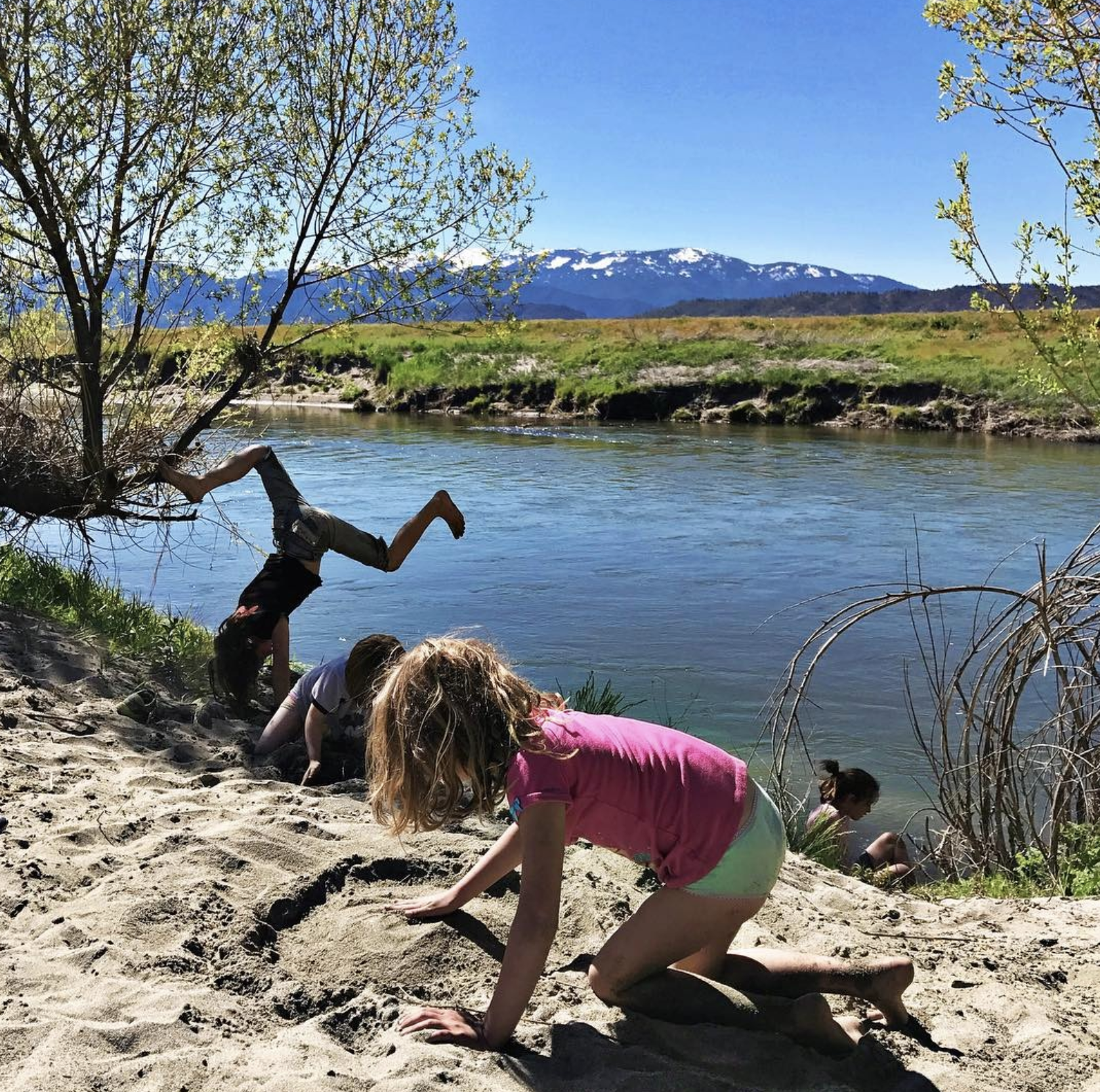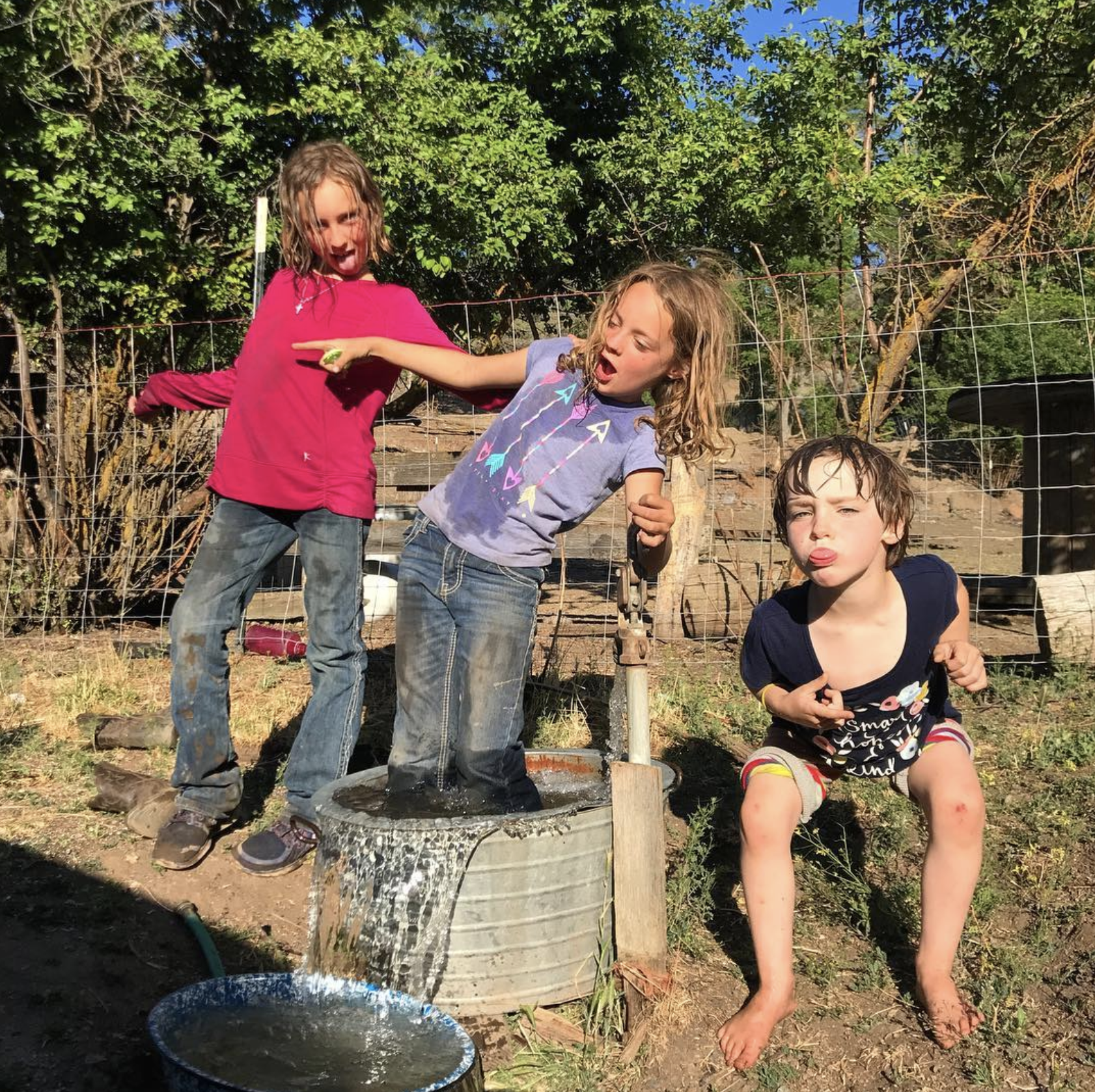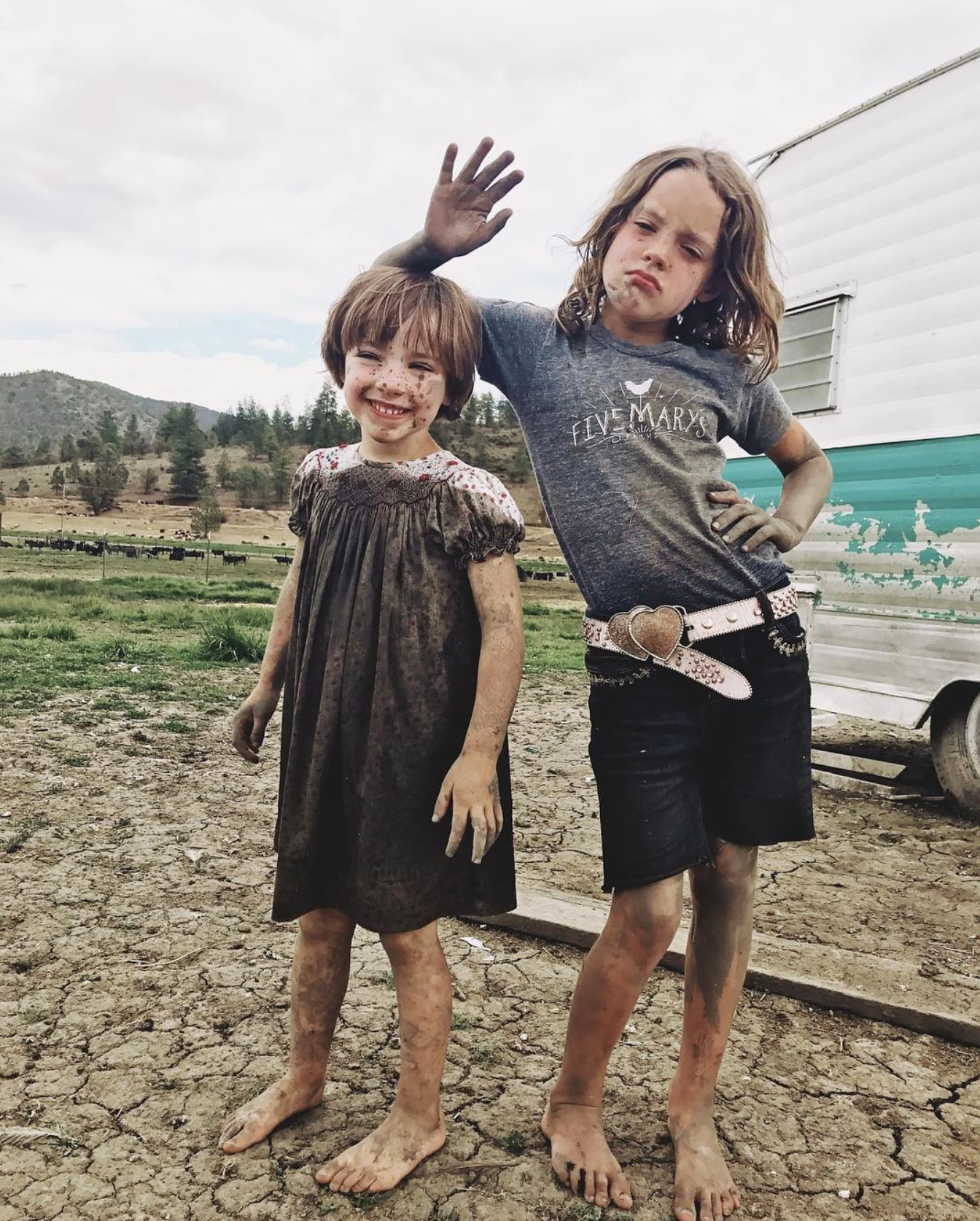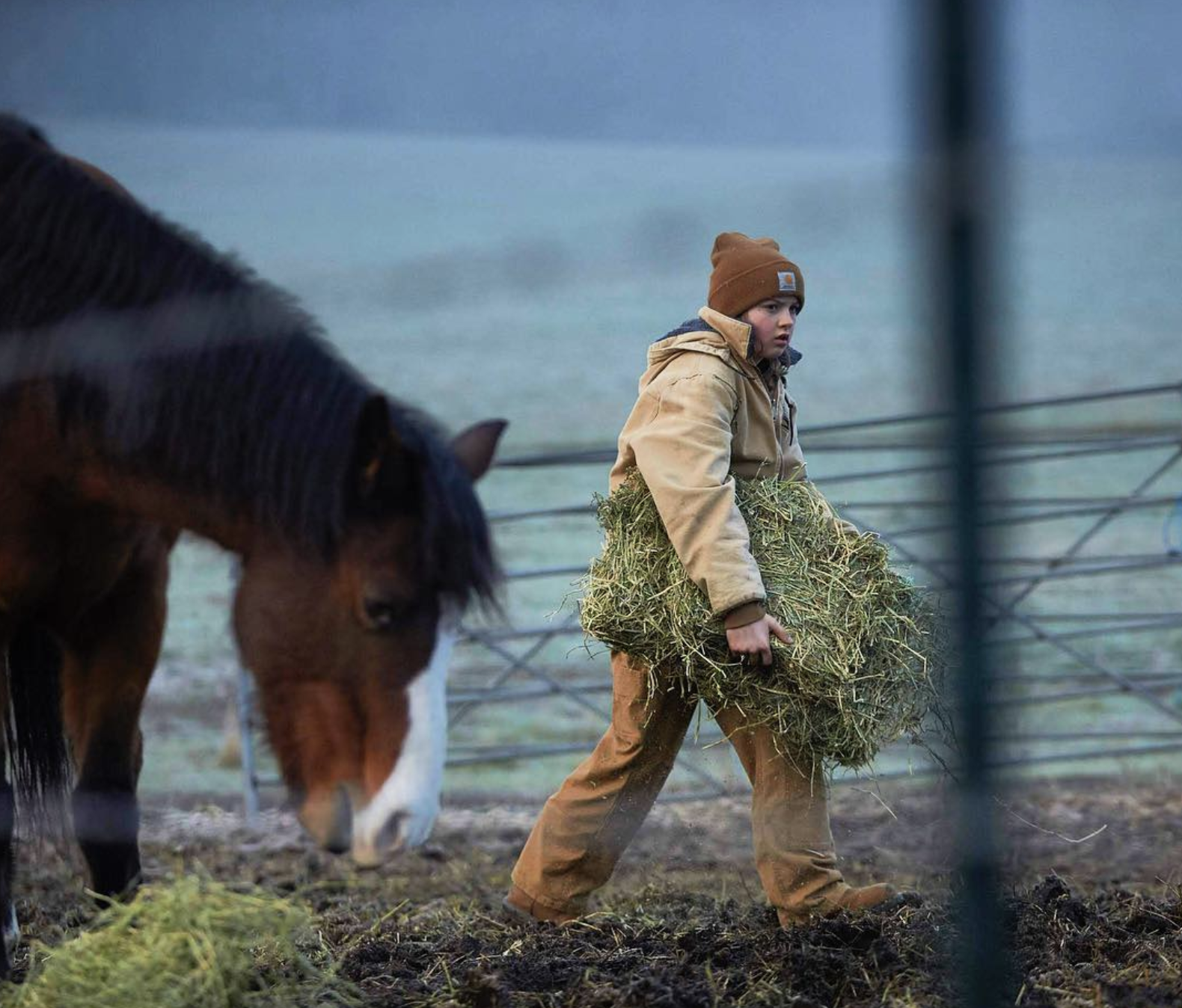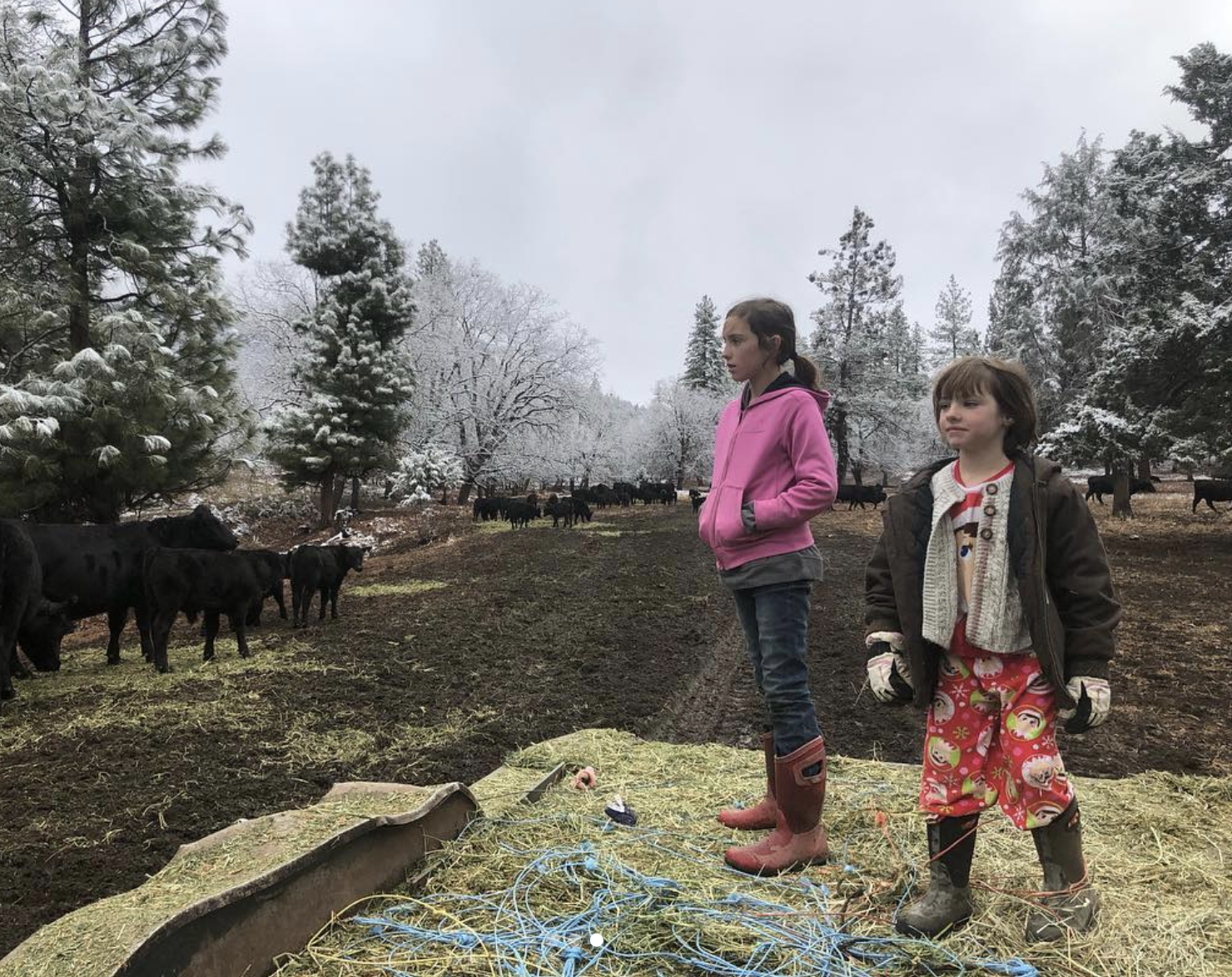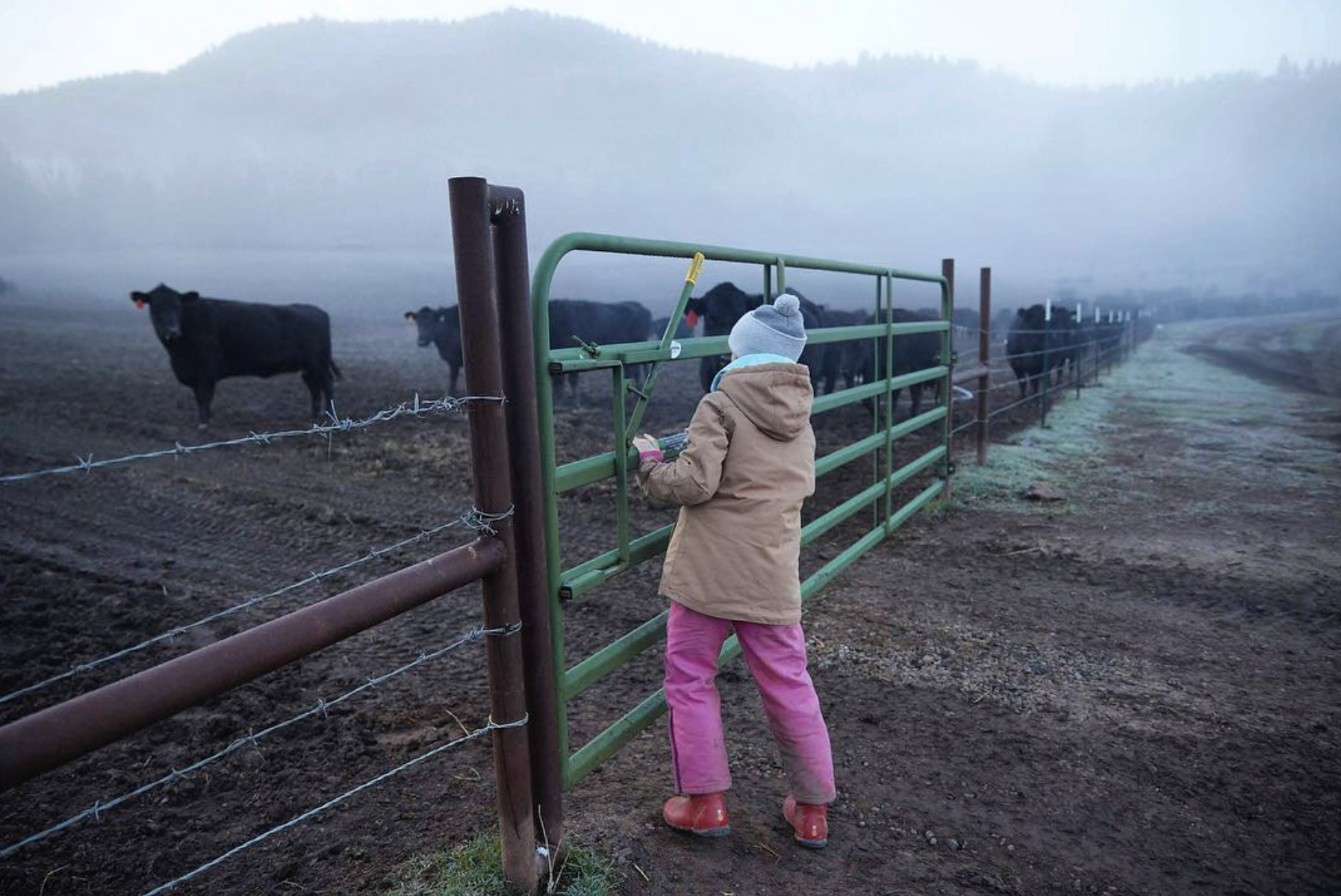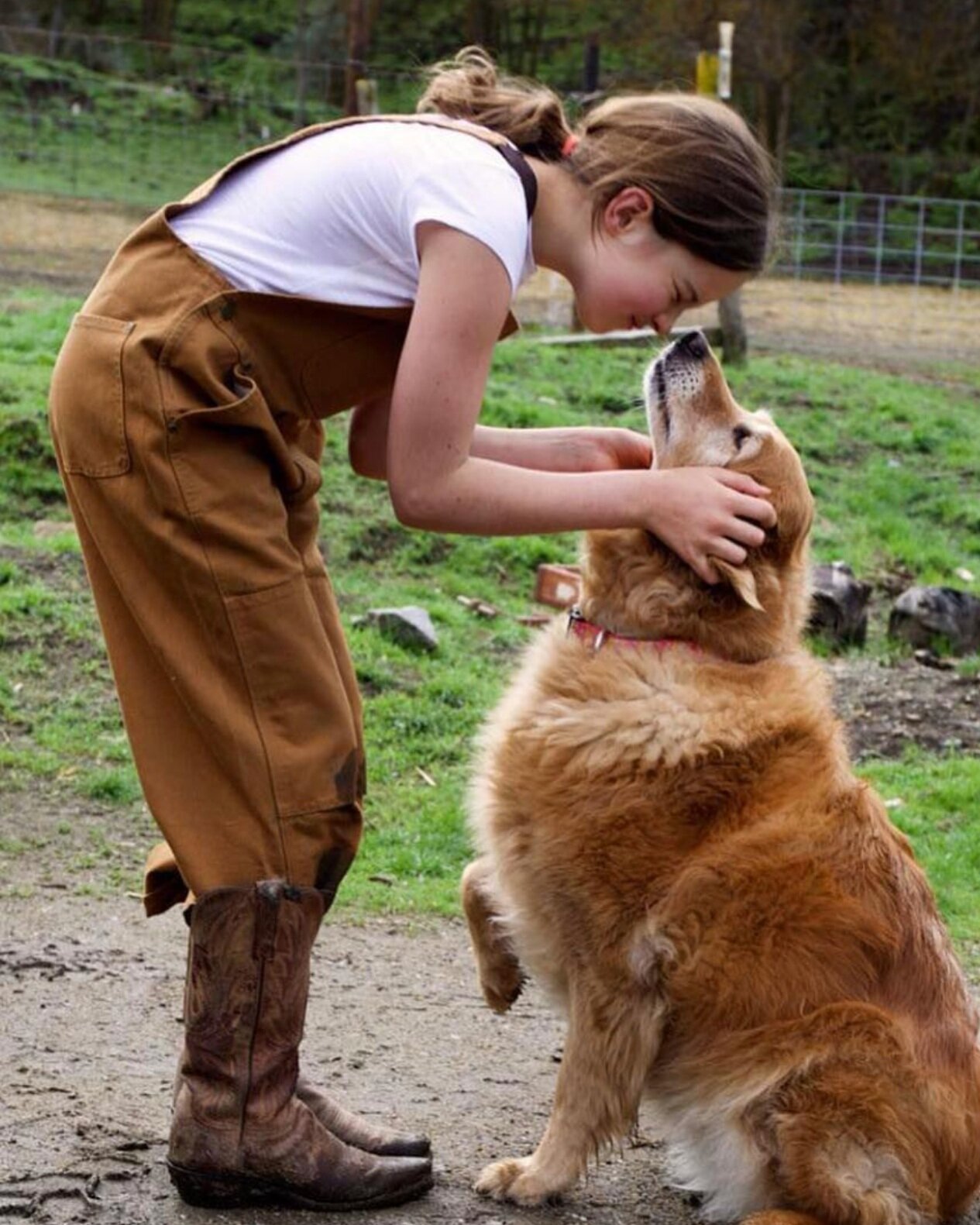Top 10 Ways to Get Your Kids to do Chores
As we near a new year, I’ve been thinking a lot lately about our move to the ranch 9 years ago (?!) and how much our life has changed since then…
In our suburban life, I didn’t expect much of the girls. We filled their sippy cups and made their snacks for them. I set out projects or created activities for them to do to keep them occupied and entertained. Their laundry was usually picked up off of the floor for them, washed, folded, and put back in their closets.
Of course they were expected to pick up their toys and clear their plates, and do some easy tasks to help occasionally, but they didn’t really help with anything substantial or learn to do things on their own.
“Work gives you meaning and purpose, and life is empty without it.” -Stephen Hawking
I think people innately want to care for their children’s every need and express their love by being caretakers. I did too.
But, I was robbing them of the opportunity to learn how to do these things for themselves and experiencing the satisfaction that comes with being self- sufficient and independent.
When we moved to the country, everything changed. By necessity, I couldn’t cater to their every need - I didn’t have time!
I quickly realized only when they HAD to step up to the plate - that my kids could actually do all of these things themselves.
If you are looking to change things up, or just need a few ideas to use in your own home, here are my 10 tips for you to try out. Take what you like and leave what you don’t… I hope this helps! <3
1. Give Them Ownership
When my girls do a chore well a couple of times, I try to give them praise that it’s ‘their chore’ because they do it so well and they are more eager to do it next time.
I remember one time a few years ago, JJ folded all of the kitchen towels out of the dryer and put them in the kitchen basket. She was so proud. The next time I said, “Oh, JJ we have kitchen towels to fold - you are so good at doing those!” and she jumped on it.
Now, every time the kitchen towels come out of the dryer she says, “I’m on it! That’s my job!” and loves that it’s her task.
Some easy chores I’ve found for kids to take ownership of…
• Wash the dishes
• Set the table
• Take out the garbage
• Sweep under the table
• Sanitize the countertops
• Put away a load of clean laundry
• Start a new load of laundry
2. Provide Choices and Empowerment
I don’t want to raise children who need someone to take care of them. I want to raise people who take care of themselves and don’t expect anything from anyone else.
I want them to feel accomplished at the end of the day from a job well done.
Before taking ownership of a chore, some kids may need to start with a little more motivation, so incentives or a chart can be helpful. I try to stay away from rewards or treats - a high five or a simple praise is often enough. “You did a great job!” when they know they earned it always feels good.
Cousin reunion with 18 kids in one house calls for a chore chart creation on night one!
Some ideas to give ‘chore choices’…
• A list on the counter and a blank line next to each one. They get to claim the line and write their name there to see how many lines they can accomplish.
• Choice of chore A or B - they feel empowered by having a choice, but they are aware that not doing a chore is not an option.
I think back to the summer we moved to the ranch and I really needed them to help. My expectations changed and so did their behavior. They started naturally helping without being asked every time.
Maisie would see the trash filling up and take it out - that’s her job.
Francie feeds the dogs and the bottle babies in the mornings before school and as soon as she gets home.
They feel accountable for these things that they “own” as their duties. I don’t really need to make lists anymore for routine chores, but they still work for deep clean days or extra projects!
3. Have High Expectations
The less help we give our kids when they don’t absolutely need it, the more they will do themselves. Every kid is capable of tasks that you might not expect. So, raise your expectations! Besides the fact that the chores are getting done, they feel so proud and accomplished of what they’ve done, especially when it’s truly helpful and contributes to the family or community.
I remember reading somewhere that instead of telling children we are proud of them, we should ask them if they are proud of themselves.
I think that’s important to remember - we want them to do things for their own self-satisfaction more than to make someone else happy or proud of them.
4. The Barter System
I’ve found the best ways to get bigger chores done with little complaint is to ask your kids to do them at the moment when they ask YOU for something.
They are much more likely to do them willingly and happily when their request is granted as a result.
In this case, I’m not talking about treats or candy. I mean something like asking to have a friend over or bringing the water toys out to play with… something that you would likely grant anyways, but not before X number of chores are done!
I try to keep a list in my head with tasks on my to do list… change the laundry, put away a load of clean clothes, do the dishes, organize the pantry, sweep the kitchen, take out the trash, organize the recycling, etc. My favorite when I need a quick one on the fly is “pick up ten things!”
Not all days are long lists of chores either!
Some days it’s just “put your backpack away and go play outside in the sunshine!” It’s always a balance of work and play.
Brian and I practice that and we want the girls to know that too.
5. Set Them Up For Success
That finished chores feeling!
Teaching your kids to do a job well done the first time is just as important as having them help at all. After all, it’s no help to have somebody wash the dishes if you have to wash them all over again because they aren’t really clean!
Take the time to do chores with them the first few times and teach them how to do their chores correctly, so they can understand the satisfaction of a job well done.
They have to understand that the expectations are for things to be done to the best of their ability, not just for the chore to be checked off the list. This is just as much for their own sense of self-satisfaction in giving their best effort and being proud of it.
6. Create A System
The most common question I get asked about life on the ranch is how I manage laundry! With so much dirt and a “free range” lifestyle, it does seem like it might be a daunting task, but like everything else, it just gets done.
Laundry used to be more of a chore before the girls started pitching in - it took creating a system to make it work smoothly.
“If a five year old can operate a smart phone, they can do a load of laundry. It takes a little training, but as they say, ‘Tell me and I forget, teach me and I remember.’”
If your expectations are perfectly washed and folded laundry or you have special instructions for certain items - this might not work.
Ours is a simplified system that works for us but could be adapted based on your standards. We don’t use hangers at all, only cubbies and bins and shelves. It makes it easier for us to put things away quickly, but obviously ranch life clothes are not going on an ironing board first!
The girls have the choice to put their basket of laundry away in their shelves or in a big wooden basket in their room where clean clothes sit until they are put away. I don’t expect the girls to put away each others clothes every time. So, they just help move a basket along quickly and then put theirs away at some point that day. Before they go to bed the clean laundry has to be empty and put away.
7. Make Spaces More Manageable
I love the benefits we get from living in close quarters and I know the girls will have such great memories all bunked together in our little home.
With that said, part of setting up your kids for success while doing chores is creating spaces that you all will be able to manage without becoming totally overwhelmed with STUFF!
We can’t ask our kids to do chores that we wouldn’t do ourselves. Here are some tips we found to make our small space living more manageable…
• OUTSIDE STORAGE: Either a garage, shed, storage container, or storage facility nearby.
• ONLY WHAT YOU NEED: Don’t keep what you don’t need! Less to fill a home with means more room to enjoy it.
• CLOSETS BY SEASON: Pull your clothes out that you aren’t wearing that season and store them somewhere else. Get rid of shoes and clothes that you don’t ever wear.
• VACATION PACK: Pack your house like it’s vacation for that season and store everything else. It’s there when you need it, but less is more in your everyday space.
8. Create Accountability
Brian has a motto he frequently uses: “Nothing is above me and nothing is below me.”
You just do it. It’s how you build things and grow things and get things done.
Kids have to learn this too. There should not be tasks that they think they are better than just because they’ve grown out of the obligation. Everybody works together.
We also often tell the girls “Don’t be a martyr.”
I think it’s one of the most annoying traits of young adults (or adults of any age!). I think it can be a bad habit kids learn early by being enabled. If we hear any of this kind of excuse, “I can’t clean the yard because it’s raining and it’s cold and my sisters made the mess and it’s not MY fault!” we nip it in the bud and tell them “It is your problem now and you figure out how to solve it.”
9. Allow Natural Consequences
There are very well meaning people who become “helicopter parents,” hovering over their child’s every move and “bulldozer parents,” the ones plowing a smooth path in front of their kids so no bumps or bruises could be experienced along the way. It can be difficult to not get caught up in it all!
However, I think it is so important to allow natural consequences to take their course.
People often ask how I let my kids make dinner without letting them use a stove. We DO let them use the stove! We do have an electric cooktop instead of gas burners, so I do feel like the risk is lower, but the girls understand that the pots and pans are hot and it’s a big responsibility to use and they are cautious and respectful of the risk. If they grab a hot pan without an oven mitt once, they will burn their hand and not do it again. We’ve all done it!
There are mistakes you learn from once and don’t make again.
If after being reminded, they don’t prepare their backpacks or make their lunch the night before or remember to bring something to a 4H meeting they knew they needed to - they face certain natural consequences.
It might take giving up some of your control and letting them use tools outside of your comfort zone, but balancing safety and letting them learn to use these tools is usually worth it in the end.
10. Encourage ‘Real World - Real Jobs’
While it’s important to have jobs/duties/chores with your own family to learn accountability, it’s also pretty valuable to take what you’ve learned and have some work experience outside of the family.
I think it’s important to learn to work for someone else besides your parents, to take directions and possibly criticism from someone else, and also to feel the empowerment of having your own job as early as possible.
When Francie was 10, she asked if she could work at a local dog kennel in our small town. She offered to work for free, but they insisted on paying her. She came out on her second day of work with $17 one dollar bills in her hand and a huge smile on her face! She was SO proud and self confident and wanted to go back and work there every afternoon.
Seeking a job outside of the home teaches many lessons in a very concentrated experience. Unfortunately, it’s not easy for kids to actually get real jobs these days with work permits and insurance. But, maybe they can find a neighbor willing to hire them to help with yard work, walk their dogs, etc. It’s important for them to take accountability of the whole process.
Learning to work for someone else is important because you have to learn to deal with being told what to do by someone other than a parent. You might have to take criticism and learn how to not get your feelings hurt, but use that information to do better next time.
These will all be very important life skills for the rest of your life!
They Can Do It!
I hope that you can use a few of these tips in your own home!
If you’d like to learn more about our move to the ranch, our parenting experiences, and our thoughts on chores for kids, my eBook '‘They Can Do It’ is available to purchase for just $9.
I’ve organized what I learned about raising kids by moving to the country into 27 chapters.
You’ll find tons of information like in this blog and SO much more. If you’re interested - here is the link for purchase!
-Mary






